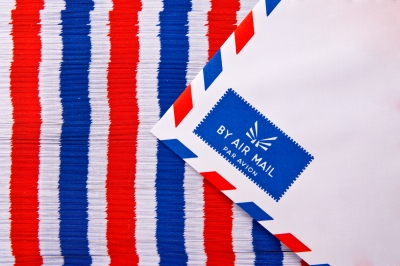 A draft customs administrative order (CAO) implementing provisions on the handling of the clearance of postal items and another on the processing of traveler and passenger baggage in the Philippines have been released for public comment.
A draft customs administrative order (CAO) implementing provisions on the handling of the clearance of postal items and another on the processing of traveler and passenger baggage in the Philippines have been released for public comment.
The two drafts are the ninth and 10th CAOs to be issued by the Department of Finance (DOF) and Bureau of Customs (BOC) to implement provisions of Republic Act No. 10863, otherwise known as the Customs Modernization and Tariff Act (CMTA).
The deadline for submission of positions papers on the two draft CAOs is November 24, the same day a public hearing on the rule is to be held.
The draft CAO on clearance of postal mail covers clearance procedures for postal item or mail, whether or not subject to duties, taxes, and other charges, as well as the clearance procedure for postal item or mail for export and transshipment.
A postal item is anything handled, processed, and delivered by the postal agency, such as express post, parcel post, and similar other postal items. Mail, on the other hand, is all matters authorized by the government for delivery through the postal service, including letters, printed materials, and money orders.
Under the proposed rules, BOC will establish a system to interface with the postal agency on the submission of the advance copy of the Customs Declaration (CN22 or CN23) for postal items coming from countries which has a bilateral or multilateral postal agreement with the Philippines.
The system will also handle submission of lists on the conditions of several postal items and mail, and periodic reports on the postal items received, handled, processed and dispatched by customs warehouse offices (CWOs) at offices of exchange (OEs).
BOC will also collaborate with the Philippine Postal Corporation (PHLPost) to establish a centralized examination and assessment area for customs duties, taxes, and other charges for these postal items or mails arriving and for delivery within the Philippines. These include one CWO at the OE for postal consignments arriving by air and one CWO at OE for postal consignments conveyed by sea including surface airlifted (SAL) postal item or mail.
Carriers for their part are required to submit a summary of the inward foreign manifest to BOC.
On the rules and regulations on de minimis importation, these will apply to postal item or mail falling within the de minimis value. Until the prescribed form is issued by BOC, small packets of postal consignments will be released under a simplified clearance procedure using CN 22 and CN 23.
CN22 or CN23 are the special declaration forms for postal items as described in the Acts of the Universal Postal Union (UPU) currently in force.
Postal items with a free carrier (FCA) or free-on-board (FOB) value of more than P50,000 will be cleared through a formal entry process and require a goods declaration, except for the following which will be cleared through an informal entry process: those covered by Section 800 (f) and (g) of the CMTA; goods of a commercial nature with FOB or FCA value of less than P50,000; and personal and household effects or goods not in commercial quantity.
For postal item or mail for export, all or part of the data in the CN 22 or CN 23 must be shared electronically with the BOC by the postal agency for advance processing.
Passenger and baggage processing
The draft CAO on traveler, passenger, and baggage processing, meanwhile, covers the clearance procedures for all travelers and crew and their baggage, whether accompanied or unaccompanied.
According to the draft, all arriving travelers and crew must accomplish the customs baggage declaration form provided by operators of airlines and vessels in the format prescribed by BOC. The declaration form will be submitted for clearance to the assigned customs officer at the customs arrival area. In addition, other documents must be presented during the clearance process.
BOC will also create specific lanes to cater to certain types of travelers, including overseas Filipino workers balikbayans and returning residents; foreign travelers with diplomatic status; airline crew members; and travelers with accompanied or unaccompanied baggage containing goods in commercial quantity.
Tobacco goods, liquors, wines, and spirits brought in as accompanied baggage, even if within the de minimis value, are subject to the provisions on excise tax of the National Internal Revenue Code, as amended. Goods purchased by travelers at Philippine Duty-Free Stores upon their arrival and which are within allowable limits will no longer be assessed the duties and taxes due.
Dutiable goods in accompanied baggage which are brought in by travelers through the airports and intended for re-exportation may be temporarily deposited for safekeeping at the Customs In-Bond Baggage Room.
Image courtesy of Sura Nualpradid at FreeDigitalPhotos.net





